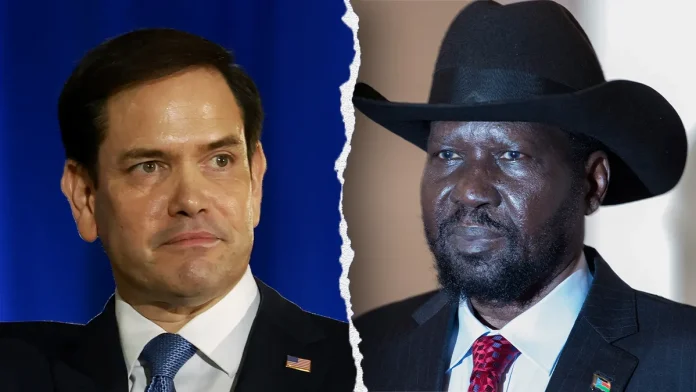The US has cancelled all visas held by South Sudanese passport holders. It has also stopped issuing new visas to nationals from the country. Officials say South Sudan refuses to take back citizens removed from the US.
US Secretary of State Marco Rubio made the announcement on Saturday. He said the South Sudanese transitional government had not cooperated with standard deportation procedures. Writing on social media platform X, Rubio stated that South Sudan had failed to meet basic international obligations.
“Every country must accept the return of its citizens when another nation, including the United States, seeks to remove them,” he said. “It is time for South Sudan’s transitional government to stop taking advantage of the United States.”
Rubio confirmed that the new restrictions take effect immediately. He added that the US may reconsider the decision if South Sudan begins to cooperate.
US immigration policy affects South Sudanese citizens
This move is part of broader immigration changes under President Trump’s renewed administration. The government has restarted controversial efforts to remove people living in the US without legal status. Rights groups and foreign governments have criticised these efforts, particularly where no criminal offence is involved.
South Sudan is not the only country affected. The US has warned that it may penalise countries that delay or reject deportations. Penalties could include visa bans or trade restrictions. For example, the US nearly imposed sanctions on Mexico when it refused to accept a deportation flight.
Temporary protected status holders at risk
It’s unclear how many South Sudanese nationals are affected by the decision. However, some of them live in the US under the Temporary Protected Status (TPS) programme. TPS allows people from countries facing war or disasters to stay in the US temporarily.
The US Department of Homeland Security reports that 133 South Sudanese currently have TPS. Another 140 may be eligible. The current protection period will expire on 3 May, unless the US government extends it.
South Sudan became independent in 2011. Since then, the country has faced severe instability and frequent clashes between government forces and opposition groups. These challenges have led many South Sudanese to seek safety abroad.
